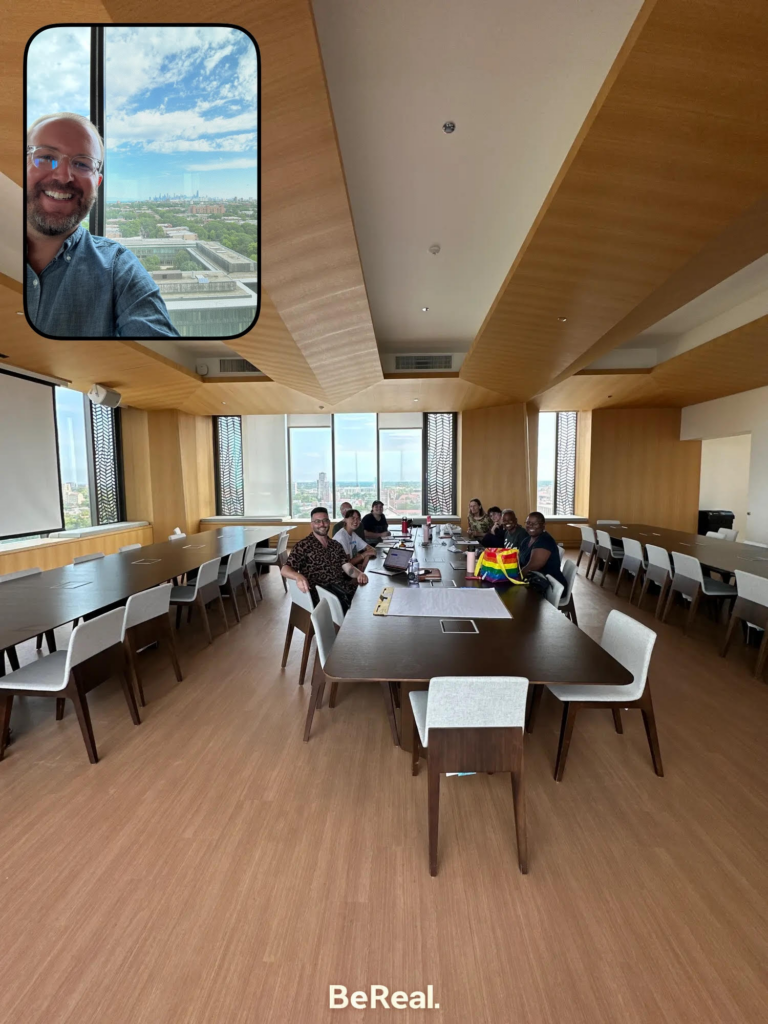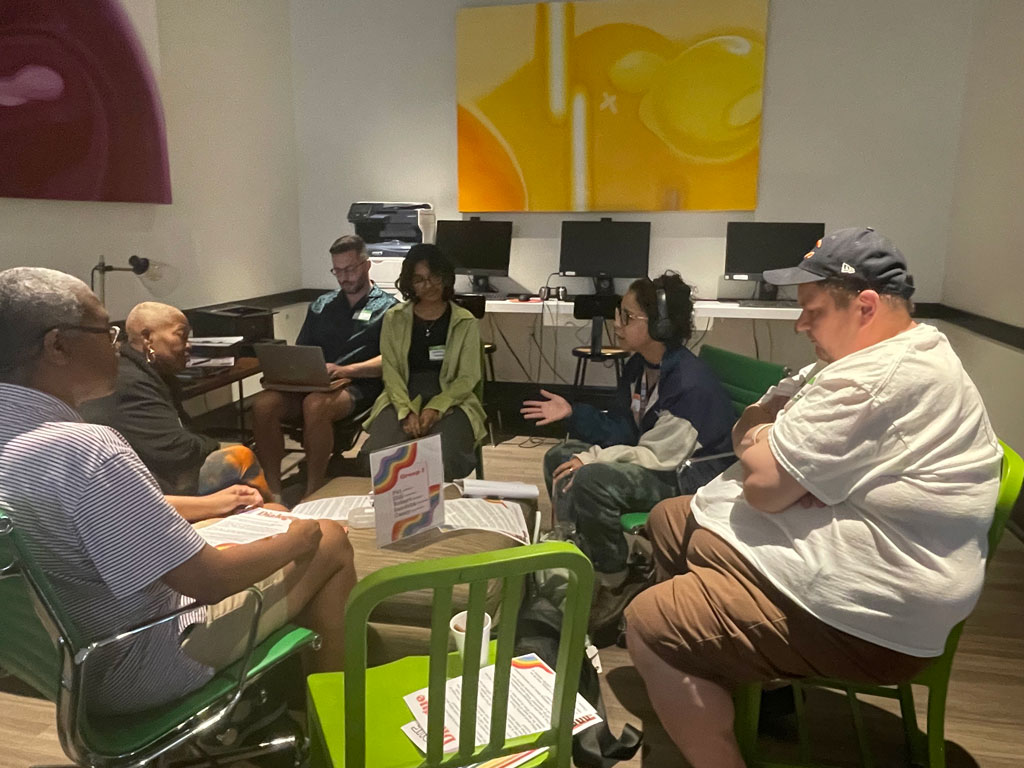About The Research


About The Research
While the LGBTQ+ Intergenerational Dialogue Project started as a community-engaged educational experience, it has expanded over the years to include additional components, including engaging in exploring the impact and lessons of such work through interdisciplinary research. Research is a fraught and complicated terrain. However, the faculty facilitators heard time and again from various colleagues and community providers about the need for our work to be documented and speak to different audiences, including our respective research communities in developmental psychology, education, social work, and cultural anthropology.
Drawing on our interdisciplinary team consisting of a cultural anthropologist, developmental psychologist, social worker, and philosopher of education we have begun to publish what we are learning about intergenerational dialogues, community-engaged education, collaborative art making, aging, and LGBTQ+ histories. The research component of our project was able to expand in 2023 due to a Spencer Large Research Grant that allowed our research team to become intergenerational itself, including two graduate research assistants and two elder consultants.
At the heart of our research is the recognition that the negative impacts on LGBTQ+ young adults and elders—stymied personal development, stifled cultural expression and recognition, and educational invisibility— are thoroughly epistemic, limiting not only civil rights and social interaction, but also the ability to recognize oneself and one’s community as knowing subjects. This systematic denial of LGBTQ+ histories and knowledges contributes to experiences of, what Miranda Fricker calls, epistemic injustice across. This form of injustice happens across and within generations. Experientially, epistemic injustice makes it difficult for marginalized subjects to make sense of their experiences and have those experiences taken seriously by their friends, family, and broader communities.
Research over the past several decades has continued to illustrate the challenges that LGBTQ+ communities face across the lifespan. Our research looks to offer insights into what intergenerational dialogues – sustained over the course of a year – provide by ways of overcoming and transforming the lives of those involved.
The research component of the project is situated in the methodological framework of ethnographic experimentation that uses both qualitative and quantitative methods. Ethnographic experimentation is an approach within cultural anthropology that centers collaborative exploration with community members as a methodological tool and shares conceptual space with methods such as participatory action research and other collaborative methodologies. Rather than entering into and studying field sites that already exist, we have, as researchers, ventured into the collaborative production of venues for knowledge creation that turn the field into a site for inquiry.
Participants come to understand their role, drawing on Holmes and Marcus (2008), as “epistemic partners that define the imaginary and plot of our own inquiries” (83). This methodological approach challenges epistemic injustice within research by challenging hierarchies of expertise and strengthening intersectional theorizing through the valuation of experience as a vital and important source of knowledge. Put differently, our approach to research places LGBTQ+ participants alongside the researchers as collaborators and co-creators in generating knowledges and practices rooted in intersectional LGBTQ+ experiences.
For further information about how our research unfolds through our various disciplinary perspectives, check out our publications.
The LGBTQ+ Intergenerational Project has been generously supported by a range of grants. These have included grants that support providing meals to participants, art making materials and supplies, as well as research. Grants have sustained this work over the years. We are deeply appreciative for receiving funding from the following:
- School of the Art Institute of Chicago: Team Teaching Award (2020, 2022), Course Enhancement Grant (2023), Faculty Enrichment Grants (2020, 2022) and the Compassion and Belonging Grant (2019)
- The University of Illinois Chicago: Award for Creative Activity (2022-2023)
- One Roof Chicago: Community Engagement Grant (2022)
- Innovation 80: CoGen (Connection Generations Through the Arts) Grant (2024)
- Spencer Foundation Large Research Grant (2023-2026)
